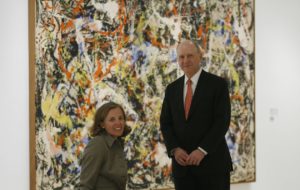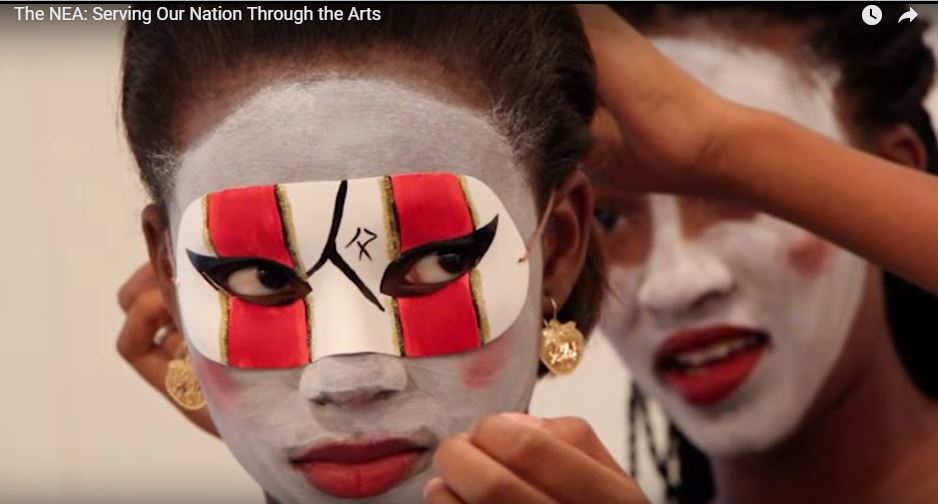‘Promoters of the Arts or Bad Actors in a Ploy to Finish a Hit Job on Arts and Culture?‘
Art is an existential expression of life. Maybe that’s why Trump wants to snuff it out just like he extinguishes his predecessor’s political accomplishments. Trump has made two attempts to quash American arts and culture by proposing to defund them and he has behaved in uncivil ways to hide his ignorance of arts’ primary virtue: authenticity.
Fortunately, this is one area enablers in Congress didn’t let him prevail. Congress, surprisingly, voted more money for the arts.
This is the first of two articles looking at Trump’s nominees to the National Council on the Arts.
That’s why Trump’s four nominees selected to serve on The National Council on the Arts—an 18-member board that advises the chairman of the National Endowment for the Arts, or NEA, on grants and policies—deserve a closer look. We’ll examine two today and two more in a subsequent article.
The arts and humanities are stitched in the fabric of our culture. The arts fit into every sector of our lives and traditions—from our economy, infrastructure, education standards and social and entertainment needs. Through the arts, since the beginning of man’s documented journey on earth, we have found ways to express ourselves, communicate with the world and bring people together.
Art makes the world a better place, yet Trump argues with this truth, which raises the question of who are the people he chooses to serve—promoters of the arts or bad actors in another ploy to finish a hit job on arts and culture?

Carleton Varney of Massachusetts and Charles Wickser Banta of New York are relative unknowns in the arts world. Varney, a world-renowned hotel interior designer, is certainly the popular rich kid of the bunch, especially when he brags to a reporter about making a scarf for his powerful friend Melania Trump.
“Carleton’s phone rings,” Carly Simpson wrote in MyNorth, a travel and leisure magazine. “ ‘Let me see if it’s Melania,’ he laughs. He’s joking. Well, sort of. He’s working on a scarf for her.”
Simpson wrote that Varney “knows people by color,” describing his flair and work styling the homes of the rich and famous, including a long list of presidents and first ladies. You can see him pitching to the hoi polloi, too, peddling his colorful beddings on the HSN, the Home Shopping Network.
Varney also owns Dorothy Draper & Company, which calls itself “America’s first and most acclaimed design firm. Since 1925, we have been creating designs for interiors, furnishings, accessories, and fabrics that excite and delight.” And they don’t decorate hotels and homes, but “Landmark Hotels” and “Grand Residences.”
Varney’s audiences are have-mores who can afford to decorate their guest bedrooms. Like meerkats, his audience immediately perks up when he writes, “Summertime is peony time!” to kick off a seasonal decorating project . Only time will tell how his good taste translates to an advocacy role for all sectors of the arts world.

Joe Lin-Hill, deputy director at Albright Knox Art Gallery in Buffalo, took a glass half full approach to the appointment of an interior design maven to the National Council on the Arts. “It’s certainly better” to pick an interior designer discussing federal arts policy “instead of a bank CEO who has no interest whatsoever in the arts.”
Lin-Hill is familiar with the other nominee we are examining today, Charles Wickser Banta, a prominent Buffalo arts patron. Banta at least has a personal, educational and philanthropic perspective.
“From where I sit,” Lin-Hill said, “I think Charlie is a great selection.” But adds, “He’s not the first national arts patron that would come to mind,” suggesting a smarter choice would be someone like Agnes Gund, who was a Museum of Modern Art trustee since 1976 and its board president from 1991 to 2002.
Gund “for the last 50 years has been close friends with many of the greatest artists of our time,” Lin-Hill noted. “That sort of person comes naturally to mind when you’re thinking about an engaged citizen advocate for the arts.”
Whether Trump selected Banta, a staunch conservative, for alternative motives—to rubber stamp cutting government funding for the arts or at least not push back hard—has stirred speculation.
Banta’s appointment was recommended by Rep. Tom Reed, a conservative Republican from Corning in southwestern New York, who has sponsored one piece of arts legislation—a statement recognizing the nonprofit National Comedy Center in Jamestown, N.Y., where Lucille Ball was born. It opened this month.
Lin-Hill is among those who believe Banta is not interested in shuttering the endowment.
“While Charlie is a fiscal conservative and a Republican and I must say that the nomination is certainly appropriate for someone who wants to advance the cause of the NEA, rather than have an appointee who can be relied upon to shut it down. So, it’s a mystery to me other than in other ways, the broader Republican view is something that I think Charlie shares. He is a fiscal conservative and a well-known respected businessman in the community, but I can only imagine Charlie would be an advocate for the NEA,” Lin-Hill said.
Featured image: Still from the video The NEA: Serving Our Nation Through the Arts.




